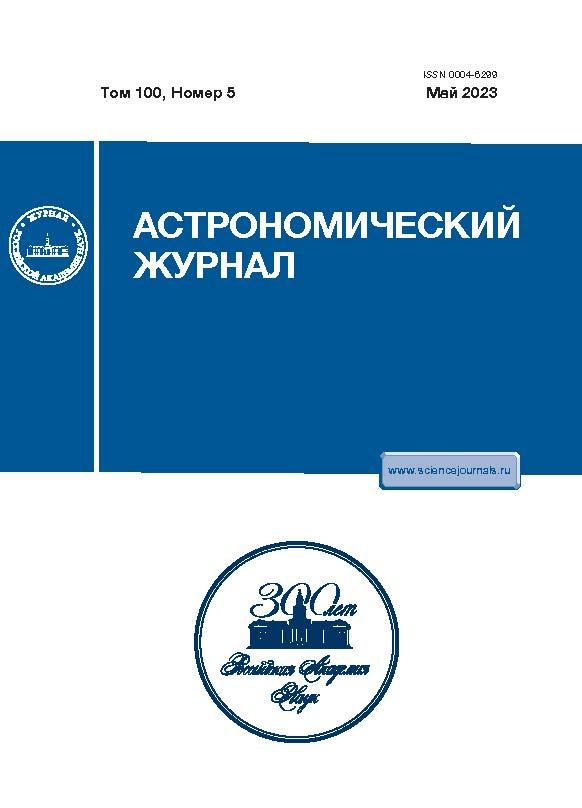Adiabatic Radio Emission Spectrum of the Sun’s Coronal Holes
- Autores: Dravskikh A.F.1, Dravskikh Y.A.1
-
Afiliações:
- Special Astrophysical Observatory of the Russian Academy of Sciences, St. Petersburg Branch
- Edição: Volume 100, Nº 5 (2023)
- Páginas: 472-478
- Seção: Articles
- URL: https://rjmseer.com/0004-6299/article/view/647543
- DOI: https://doi.org/10.31857/S0004629923050031
- EDN: https://elibrary.ru/YWCOFP
- ID: 647543
Citar
Texto integral
Resumo
Coronal holes on the Sun have been observed at individual frequencies for quite a long time in the wavelength range from radio to X-rays. Observations in a wide range of radio frequencies are carried out with the RATAN-600 radio telescope. An analysis of long-term spectral observations of the RATAN-600 radio telescope showed that the emission spectrum of coronal holes is radically different from the spectrum of active formations above sunspots, but, differing markedly from the spectrum of the quiet Sun, it also has similarities with it. It has been established that the radio emission of coronal holes has an adiabatic spectrum and does not contain noticeable coherent radiation, that is, recombination radio lines and lines of the fine structure of hydrogen and other elements.
Sobre autores
A. Dravskikh
Special Astrophysical Observatory of the Russian Academy of Sciences, St. Petersburg Branch
Email: dedalfed@mail.ru
St. Petersburg, Russia
Yu. Dravskikh
Special Astrophysical Observatory of the Russian Academy of Sciences, St. Petersburg Branch
Autor responsável pela correspondência
Email: dedalfed@mail.ru
St. Petersburg, Russia
Bibliografia
- M. Waldmeier, Z. Astrophys. 38, 219–36 (1956).
- S. R. Cranmer, Living Rev. Solar Phys. 6, 3 (2009).
- В. М. Богод, А. М. Алесин, А. А. Перваков, Астрофиз. бюлл. 66, 2 (2011).
- J. P. Wild, Astrophys. J. 115, 206 (1952).
- А. Ф. Дравских, З. В. Дравских, Астрон. журн. 65, 199 (1988).
- А. Ф. Дравских, Н. Г. Петерова, Н. А. Топчило, Астрон. журн. 96, 246 (2019).
- А. Ф. Дравских, Ю. А. Дравских, Астрон. журн. 98, 694 (2021).
- А. Ф. Дравских, Ю. А. Дравских, Астрон. журн. 99, 496 (2022).
- В. В. Железняков Радиоизлучение Солнца и планет (М., 560, 1964).
- Л. Д. Ландау, Е. М. Лифшиц, Статистическая физика. Часть 1 // Теоретическая физика (М.: Наука, Т. V., 584, 1976).
- S. F. Smerd, Australian J. Sei. Res. A 3, 34 (1950).
- J. B. Zirker, Rev. of Geophys. and Space Phys. 15, 257 (1977).
- В. Н. Боровик, В. Г. Медарь, В. И. Гараимов, Тр. междунар. конф. “Солнце в максимуме активности и солнечнозвездные аналоги” Пулково 17–22 сентября 2000 г. (СПб.: ГАО РАН, 112–114, 2000).
- M. D. Papagiannis and K. B. Baker, Sol. Phys. 79, 365–374 (1982).
- V. N. Borovik, M. S. Kurbanov, M. A. Livshits, and B. I. Ryabov, Sov. Astron. 34, 522 (1990).
- О. А. Голубчина, Астрон. журн. 98, 332 (2021).
Arquivos suplementares
















